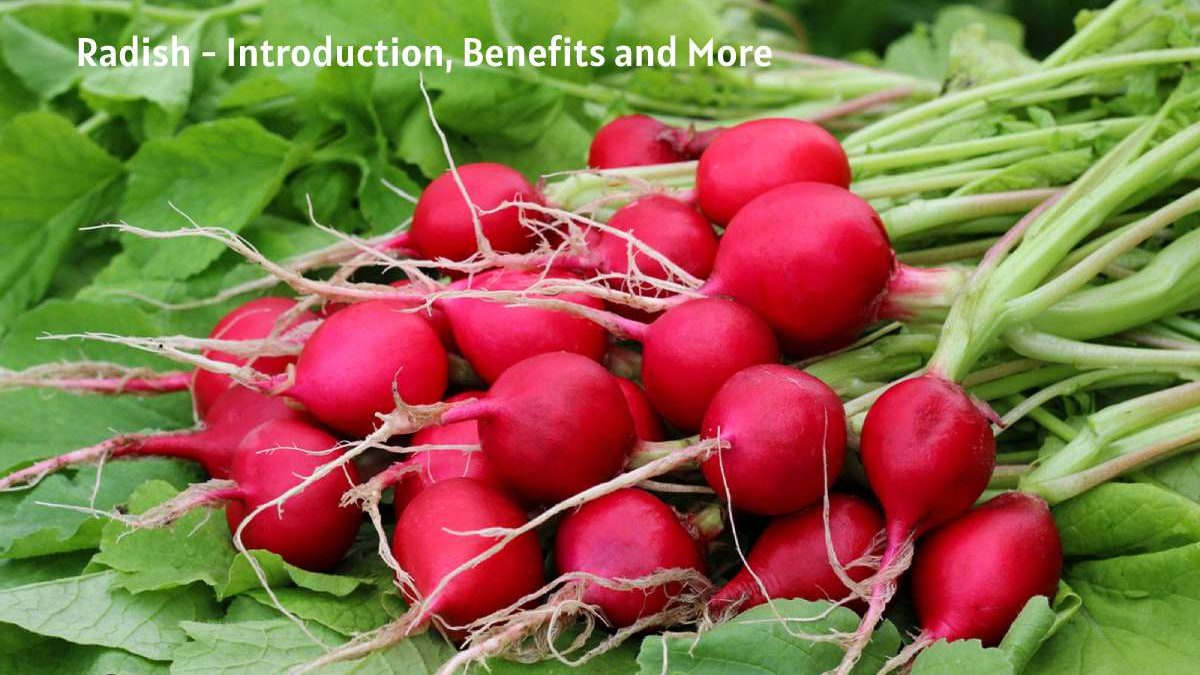Table of Contents
Introduction
Radish is one of the root vegetables belonging to the crusader vegetable family, such as broccoli and cabbage. Although, since ancient times, it was believed that eating radish and other vegetables of this family played significant role in promoting health, as demonstrated by modern science, what are the essential benefits of radish?
Benefits Of Radish
Here are the most critical potential radish benefits:
Natural cooling of the body and maintaining moisture
Eating radish on hot days helps reduce excess heat in the body and contains a high water content with a deficient number of calories (less than 20 calories per cup of whole chopped radish).
As a source of vitamin c, zinc and phosphorus, they are all tissue-nourishing substances and help maintain body and skin moisture in particular, so radish may be one of the summer vegetables of choice to cope with the atmosphere’s heat.
Calming Sore Throat
With its stinging humour, radish helps eliminate excess mucus, helps clean the sinuses and soothe a sore throat and cold disease symptoms, thanks to its content of powerful antioxidants such as vitamin C.
immune enhancement and detoxification of the body
Radish intake prevents viral infections and boosts immunity due to its high vitamin C content. In addition, it is a natural disinfectant for the body and helps eliminate free radical radicals and toxins in the body through powerful antioxidants that are a high source.
Regular consumption of radishes has been found to help fight different microbes and prevent infections.
Promoting Kidney Health
It is a natural diuretic food and may play a significant role in cleaning up toxins and waste by enhancing kidney function and purification in the body. This property may help those with kidney problems and diseases.
In some cases, the kidneys do not function properly; toxins accumulate, radish intake may help enhance kidney function and clean up toxins by increasing the amount of urine and production and ridding the body of waste through it, and the information of radishes helps treat urinary tract infection (UTI) and kidney stones.
Regulating Blood Pressure Levels
A recent study printed in Nutrition Research and Practice linked the intake of radish leaves to their effect on blood pressure,
finding that participants with blood pressure. And radish leaves observed a decrease in their pressure levels, probably due to their high potassium content and being poor.
Therefore, eating radishes can greatly help blood pressure patients control pressure, and those with heart disease regulate their heartbeat and promote arterial health.
Benefits Of Radish For The Skin
Radish is rich in many nutrients. And antioxidants that can make it an ideal food to promote skin and skin health and treat some of its disorders; here are the most famous of these benefits:
It helps moisturize the skin with its high water content, helping to prevent dry skin.
Maintains fresh coat thanks to its water, vitamin c, phosphorus and zinc content.
It is a high source of vitamin c necessary to build collagen in the body. Which means stimulating cell regeneration and preventing signs of ageing.
It contributes to detoxification in the body, treating some skin problems.
It is a skin cleanser that can be applied directly to clean and sterilize.
Fights disorders, skin diseases and infections thanks to its powerful antioxidant content.
Helps treat insect bites.
The Nutritional Content Of The Radish
radish is a low-calorie, high-water vegetable, providing 100 g fresh radish roots of no more than 16 calories, yet a rich source of nutrients, antioxidants and fibre.
It is renowned for its high vitamin content and its content of violet. B vitamins such as vitamin b6 and thiamine. And is a source of a number of important minerals such as magnesium, iron, calcium and copper.
It contains substances known as Isothiocyanate. The most famous antioxidant compound known as Sulforaphane, which has proven effective in cancer resistance.
Radish also contains several phytochemicals. And antioxidants important in removing body toxins such as indoles, flavonoids, lutein, beta carotene and Zea-xanthin
Also Read: What is Haemorrhoid Healing Exercises?


